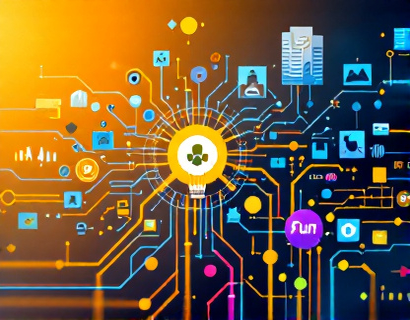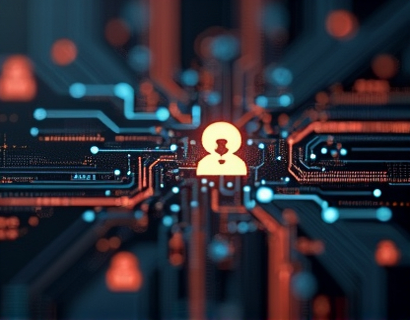Transforming Education with AI-Powered Chatbots: A Comprehensive Guide
The integration of artificial intelligence in educational settings has opened new avenues for learning, making knowledge more accessible and personalized than ever before. Among these innovations, AI-powered educational chatbots stand out as a transformative tool, offering specialized insights to students, families, and educators. This article delves into the capabilities and benefits of these chatbots, focusing on how they deliver industry-relevant knowledge and services through verified content, ensuring a safe and enriching experience for all users.
The Role of AI Chatbots in Education
AI chatbots are designed to simulate human-like conversations through artificial intelligence, enabling them to interact with users in a conversational manner. In the context of education, these chatbots serve as virtual assistants that provide tailored information, answer queries, and guide users through complex topics. For students, they offer an additional layer of support outside the classroom, allowing for self-paced learning and immediate access to resources. Families and educators benefit from these tools as well, gaining insights into educational best practices and industry trends.
Specialized Insights for Students
For students, the primary advantage of AI chatbots lies in their ability to deliver specialized insights that align with their academic needs. These chatbots can provide detailed explanations of complex subjects, from mathematics and science to literature and history. By leveraging advanced algorithms, they adapt to the user's level of understanding, offering simplified concepts for beginners and more in-depth analysis for advanced learners. This personalized approach ensures that each student receives the appropriate level of challenge and support, fostering a deeper understanding of the material.
Moreover, AI chatbots can assist students in their research projects by providing credible sources and verifying the accuracy of information. This feature is crucial in today's digital age, where misinformation can spread rapidly. By ensuring that the content is verified and reliable, these chatbots help students develop critical thinking skills and a discerning approach to information consumption.
Support for Families
Families play a vital role in a student's educational journey, and AI chatbots can significantly enhance parental involvement. These chatbots offer resources and insights that help parents understand their child's curriculum, learning progress, and areas that need improvement. By providing clear and concise information, chatbots empower parents to support their children's education more effectively.
Additionally, AI chatbots can facilitate communication between parents and educators. They can serve as a platform for scheduling meetings, discussing concerns, and sharing updates about a student's performance. This streamlined communication ensures that everyone involved in a student's education is on the same page, fostering a collaborative environment that benefits the child's learning experience.
Resources for Educators
Educators are another key group that can greatly benefit from AI chatbots. These tools can provide teachers with valuable insights into industry trends, pedagogical strategies, and the latest educational technologies. By staying informed about these developments, educators can enhance their teaching methods and create more engaging and relevant lesson plans.
AI chatbots can also assist teachers in grading and administrative tasks, freeing up time for more direct interaction with students. For instance, chatbots can automate the grading of multiple-choice questions or provide feedback on written assignments, allowing teachers to focus on more nuanced aspects of education. This efficiency not only reduces the workload but also improves the overall quality of education.
Ensuring Content Verification and Safety
One of the most significant advantages of AI chatbots in education is their ability to provide content verification. In an era where false information can easily circulate, ensuring that the information provided to students, families, and educators is accurate and reliable is paramount. These chatbots are equipped with sophisticated algorithms that cross-reference data from multiple trusted sources, ensuring that the content is not only accurate but also up-to-date.
Moreover, safety is a top priority in educational technology. AI chatbots are designed with robust safety measures to protect users, especially children. They adhere to strict privacy policies, ensuring that personal data is handled with the utmost care. Additionally, chatbots can be configured to filter out inappropriate content and provide a child-friendly interface, making them suitable for use by students of all ages.
Child-Friendly Features
Recognizing the unique needs of young learners, AI chatbots can be tailored to create a safe and engaging environment for children. These chatbots use age-appropriate language and visuals, making complex concepts more accessible and enjoyable. They can also incorporate gamification elements, such as quizzes and interactive activities, to keep children engaged and motivated.
For younger students, chatbots can serve as a friendly guide, encouraging curiosity and a love for learning. By providing immediate feedback and positive reinforcement, these chatbots help build confidence and a growth mindset. Parents and educators can rest assured that their children are interacting with a tool that prioritizes their well-being and educational development.
Enhancing Learning Through Personalization
Personalization is a cornerstone of effective education, and AI chatbots excel in this area. By analyzing user interactions and performance data, these chatbots can create customized learning paths that cater to each individual's strengths, weaknesses, and learning preferences. This personalized approach ensures that students receive the support they need to succeed, whether they require additional practice in a particular subject or advanced challenges to keep them engaged.
For example, a student struggling with algebra can receive step-by-step explanations and practice problems tailored to their specific areas of difficulty. Conversely, a student eExcelling in the subject can be directed to more complex topics and real-world applications. This level of customization not only enhances learning outcomes but also fosters a sense of accomplishment and motivation.
Industry-Relevant Knowledge
Beyond academic subjects, AI chatbots can provide valuable insights into various industries, helping students and educators stay informed about current trends and developments. For students considering their future career paths, these chatbots can offer information on different fields, including job market demand, required skills, and educational pathways. This early exposure to industry knowledge can guide students in making informed decisions about their education and career goals.
For educators, staying updated on industry trends is crucial for designing relevant and practical curricula. AI chatbots can provide insights into the skills and knowledge that are in high demand within specific industries, enabling educators to align their teaching with real-world needs. This alignment not only prepares students for the workforce but also enhances the overall value of the education they receive.
Building a Safe and Educational Environment
The integration of AI chatbots in educational settings is not just about providing information; it's about creating a safe and educational environment that supports the holistic development of students. By ensuring content verification and maintaining strict privacy standards, these chatbots foster trust and reliability. This trust is essential for educators and parents who are increasingly looking for technology solutions that complement and enhance traditional learning methods.
Furthermore, the interactive nature of AI chatbots encourages active learning and critical thinking. Students are not passive recipients of information but active participants in their learning journey. This engagement is crucial for developing problem-solving skills, creativity, and a lifelong love for learning.
Conclusion
AI-powered educational chatbots represent a significant advancement in the way we approach learning and education. By providing specialized insights, verified content, and a safe environment, these chatbots offer a valuable resource for students, families, and educators. As technology continues to evolve, the potential for AI to enhance education is vast, promising a future where learning is more personalized, accessible, and effective. Embracing these innovations can lead to a more informed, engaged, and successful generation of learners.











































